De Iraanse schrijver Hooshang Golshiri werd geboren op 16 maart 1938 in Isfahan. Zie ook alle tags voor Hooshang Golshiri op dit blog.
Uit: King of the Benighted (Proloog, vertaald door Abbas Milan)
“The Black Dome is a part of a longer poem called Haft Peykar (Seven Beauties) by the Persian poet Nizami of Ganja (1141-1203). The seven beauties refer to seven portraits of daughters of different kings-p;from the Raj of India and the Khaghan of China to the Shah of Kharazm and the king of the West, or “Sunset-land.” When Bahram the Sassanian King, discovers these portraits, he falls in love with them, and, upon succeeding to the throne vacated by the death of his father Yazdigird, he marries all seven princesses. The represent the climes into which the habitable world is divided and are lodged in separate symbolically colored palaces, beginning with the black and ending with the white. Bahram then visits them on seven successive days. This is the story of the first night.
On Saturday, Bahram, clothed in black from head to foot, went to the Black Dome where his bride, the daughter of the Raj of India lived. He asked the Princess to tell him a story and she, with her head cast down, said: When I was a child, a pious and compassionate woman visited our house once a month, and she always wore black. After many persistent inquiries, she finally acquiesced and told us the secret of her unusual attire.
When I was young, the woman said, I was servant to a mighty King in whose land sheep and wolves lived in amity. Yet fate had it that he would become the King of the Benighted, and the story I’ll tell you is the tale of how he came to wear black for the rest of his life.”
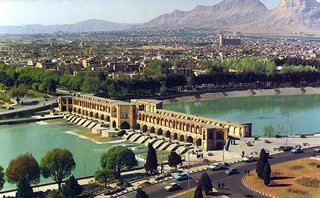
Isfahan
De Amerikaanse schrijfster Alice Hoffman werd geboren op 16 maart 1952 in New York. Zie ook alle tags voor Alice Hoffman op dit blog.
Uit: The Ice Queen
“Be careful what you wish for. I know that for a fact. Wishes are brutal, unforgiving things, they burn your tongue the moment they’re spoken and you can never take them back. They bruise and bake and come back to haunt you. I’ve made far too many wishes in my lifetime, the first when I was eight years old. Not the sort of wish for ice cream or a party dress or long, blond hair; no. The other sort, the kind that rattles your bones, then sits in the back of your throat, a greedy red toad that chokes you until you say it aloud.
The kind that can change your life in an instant, before you have time to wish you can take it back.
I was in the wrong place at the wrong time, but don’t all stories begin this way? The stranger who comes to town and wreaks havoc. The man who stumbles off a cliff on his wedding day. The woman who goes to look out the window when a bullet, or a piece of glass, or a blue-white icicle pierces her breast. I was the child who stomped her feet and made a single wish and in so doing ended the whole world — my world, at any rate. The only thing that mattered. Of course 1 was self-centered, but don’t most eight year-old girls think they’re the queen of the universe? Don’t they command the stars and seas? Don’t they control the weather? When I closed my eyes to sleep at night, I imagined the rest of the world stopped as well. What I wanted, I thought I should get. What I wished for, I deserved.”
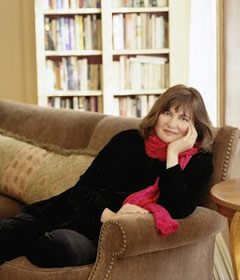
De Peruaanse dichter César Vallejo werd geboren op 16 maart 1892 in Santiago de Chuco, Peru. Zie ook alle tags voor César Vallejo op dit blog..
Paris, October 1936
From all of this I am the only one who leaves.
From this bench I go away, from my pants,
from my great situation, from my actions,
from my number split side to side,
from all of this I am the only one who leaves.
From the Champs Elysées or as the strange
alley of the Moon makes a turn,
my death goes away, my cradle leaves,
and, surrounded by people, alone, cut loose,
my human resemblance turns around
and dispatches its shadows one by one.
And I move away from everything, since everything
remains to create my alibi:
my shoe, its eyelet, as well as its mud
and even the bend in the elbow
of my own buttoned shirt.
Under The Poplars
Like priestly imprisoned poets,
the poplars of blood have fallen asleep.
On the hills, the flocks of Bethlehem
chew arias of grass at sunset.
The ancient shepherd, who shivers
at the last martyrdoms of light,
in his Easter eyes has caught
a purebred flock of stars.
Formed in orphanhood, he goes down
with rumors of burial to the praying field,
and the sheep bells are seasoned with shadow.
It survives, the blue warped
In iron, and on it, pupils shrouded,
A dog etches its pastoral howl.
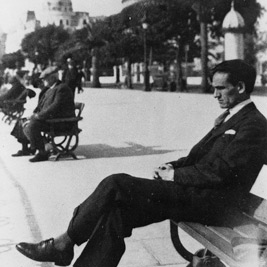
De Franse schrijver en dichter Sully Prudhomme (eig. René François Armand Prudhomme) werd geboren op 16 maart 1839 in Parijs. Zie ook alle tags voor Sully Prudhomme op dit blog.
La Place Saint-Jean-de-Latran
Au mois de novembre, à midi,
Je foulais cette large place
Au sol vague, formant terrasse
Sur la campagne à linfini.
A gauche, un aqueduc sallonge
Par-dessus les plis du désert
Et dans les montagnes se perd
Aussi loin que le regard plonge ;
Vieil échanson que nuse point
La soif des races, il commence
A mes pieds par une arche immense
Et finit là-bas par un point…
A droite, des vergers, des vignes,
Des toits plats, des murs blancs, des pins,
Et, tout au loin, les monts Sabins
Aux sereines et fermes lignes.
Tel le fond dun lac azuré,
A travers leau tranquille et belle,
Voilé, mais non terni par elle,
Semble grandir transfiguré ;
Tel, dans les campagnes romaines,
Sous la fine écharpe de lair
Paraît plus doux et non moins clair,
Et plus grand, lhorizon des plaines ;
Et cet air magique et subtil
Est tiède : ici lété sachève
Comme un printemps nouveau qui rêve
En attendant son mois d’avril.
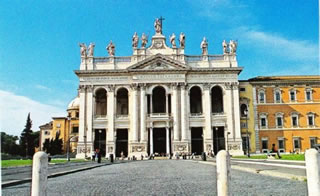
Sint Jan van Lateranen, Rome
De Franse schrijver en dichter René Daumal werd geboren op 16 maart 1908 in Boulicourt in de Ardennen. Zie ook alle tags voor René Daumal op dit blog.
Uit: La guerre sainte
“Je vais faire un poème sur la guerre. Ce ne sera peut-être pas un vrai poème, mais ce sera sur une vraie guerre.
Ce ne sera pas un vrai poème, parce que le vrai poète, s’il était ici, et si le bruit se répandait parmi la foule qu’il allât parler – alors un grand silence se ferait, un lourd silence d’abord se gonflerait, un silence gros de mille tonnerres.
Visible, nous le verrions, le poète et voyant, il nous verrait ; et nous pâlirions dans nos pauvres ombres, nous lui en voudrions d’être si réel, nous les malingres, nous les gênés, nous les tout-chose.
Il serait ici, plein à craquer des multitudes des ennemis qu’il contient – car il les contient, et les contente quand il veut – incandescent de douleur et de sacrée tranquille comme un artificier, dans le grand silence il ouvrirait un petit robinet, le tous petit robinet du moulin à paroles, et par là nous lâcherait un poème, un tel poème qu’on en deviendrait vert.
Ce que je vais faire ne sera pas un vrai poème poétique de poète, car si le mot “guerre” était dit dans un vrai poème – alors la guerre, la vraie guerre dont parlerait le vrai poète, la guerre sans merci, la guerre sans compromis s’allumerait définitivement dans le dedans de nos coeurs.
Car dans un vrai poème les mots portent leurs choses.
Mais ce ne sera pas non plus discours philosophique. Car pour être philosophe, pour aimer la vérité plus que soi-même, il faut être mort à l’erreur, il faut avoir tué les traîtres complaisances du rêve et de l’illusion commode. Et cela, c’est le but et la fin de la guerre, et la guerre est à peine commencée, il y a encore des traîtres à démasquer.
Et ce ne sera pas non plus oeuvre de science. Car pour être un savant, pour voir et aimer voir les choses telles qu’elles sont, il faut être soi-même, et aimer se voir, tel qu’on est. Il faut avoir brisé les miroirs menteurs, il faut avoir tué d’un regard impitoyable les fantômes insinuants. Et cela, c’est le but et la fin de la guerre, et la guerre est à peine commencée, il y a encore des masques à arracher.”
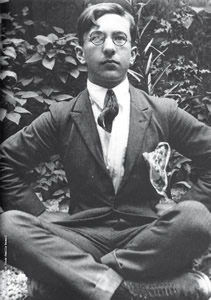
Zie voor nog meer schrijvers van de 16e maart ook mijn vorige blog van vandaag.
